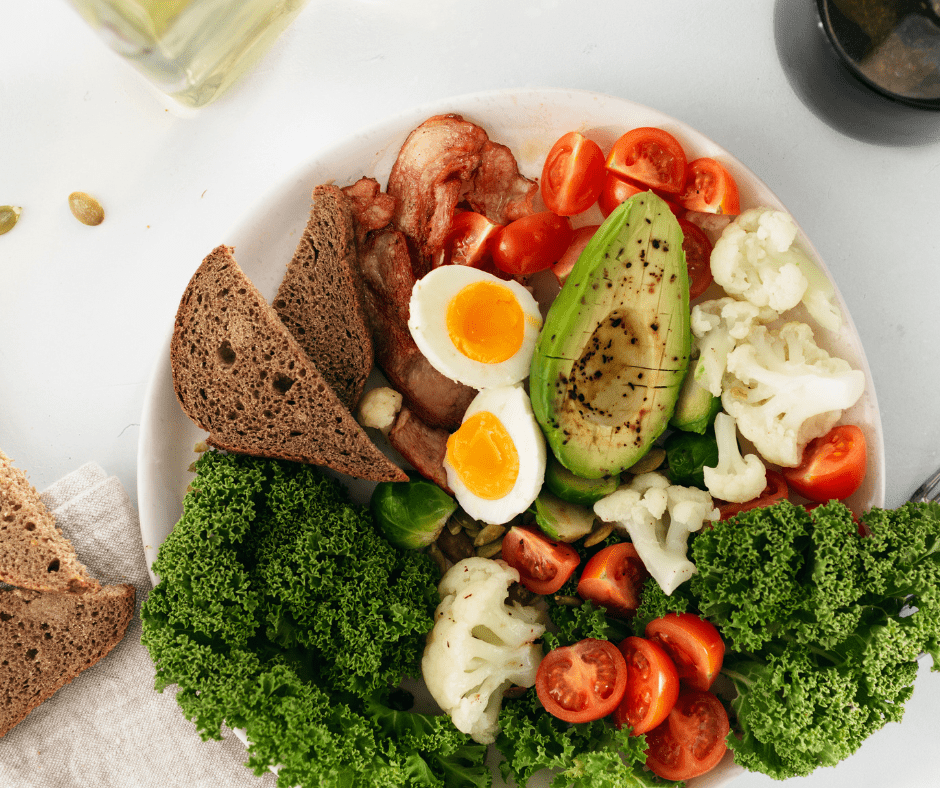If you’re currently doing some serious training and working towards a specific goal then it’s likely you feel this way…
After a morning of training… you struggle to keep your eyes open come lunchtime and by mid-afternoon, you’ve made your way to the couch for an undeniably much-needed nap.
One of the reasons you feel fatigued and sleepy after a tough morning of training is that your nutritional intake after that morning’s training session is not what it should be.
A large majority of the fatigue is from the training but a big portion of that can be alleviated by sorting out your nutrition early on.
That’s why we’ve decided to share with you some crucial nutrition tips to make sure that after your tough training sessions you bounce back and recover as quickly as possible.

8 CRUCIAL Nutrition Tips For TOP Running Performance
It goes back to the preparation for the session even before it starts.
- Have a Little Extra
- Don’t Ignore Your Main Meals
- Fuel Up During The Training Session
- Aid Your Muscle Recovery
- Eat All The Colors
- Adjust For Your Training Sessions
- Hydrate Correctly – No Matter The Weather
- Chat With An Expert
Have a Little Extra
If you know that you’re going to have a very tough training session in the morning then the night before you can have a little extra dinner.
Yes, a lot of people are trying to watch their weight and don’t want to eat a lot of carbs but all we’re saying is that because of your tough session in the morning, it’s completely alright and recommended to have some more of whatever you’re eating, just to provide that extra fuel for the morning.
Don’t Ignore Your Main Meals
Proper meals are where good runner nutrition really counts and don’t forget that carbohydrates are the primary fuel source for running.
Protein is also extremely important to include in your main meals, it aids in your recovery and is essential for your bone health.
Half of your plate should come from vegetables or fruits, a quarter of the plate from a starchy source, and a quarter from protein, the starch would be a whole grain, and the protein would be lean.
Include those three plates a day, with smaller snacks in between, with a protein component.
Eat real foods, get rid of processed foods, and choose quality carb sources, so whole grains, fruits, and vegetables, no potato chips, no refined biscuits, and no bars that are heavily refined.
Fuel Up During The Training Session
During the training session, you need to consume a mix of protein and carbohydrates… this will also benefit you on race day because you will be training your gut to handle that extra fuel.
As a general guideline, we like to use the analogy of filling the fuel tank of a car. We generally have between 60-90min of Glycogen stores in the tank (depending on the intensity of the session).
If we deplete the tank and are not topping up regularly, you run out of fuel. Unfortunately, you can’t just refill the tank at this stage, it is too late and if you have gone deep enough, it could take anything up to 72hrs to properly replace your glycogen stores. This is why you may feel flat for a day or two after a hard run/race.
This Is How Long You Should Wait After Eating To Go For A Run
Aid Your Muscle Recovery
Straight after the session, as soon as you can, consume some carbs and protein to aid in muscle recovery, restore the glycogen, and repair your muscles.
The first four hours after strenuous exercise is a crucial time for taking on new glycogen to replace what you’ve lost in that training session.
Everyone, but more specifically runners, needs vitamins, minerals, and extra nutrients such as iron, vitamin D, calcium, and magnesium. The more varied and colorful your veggies are, the more of those nutrients you will consume.
Eat All The Colors

Vitamin C helps your body make collagen, which helps maintain the integrity of your bones, muscles, skin, and tendons, it’s also important for wound healing.
By eating all the colors of the rainbow you will also be saving yourself a lot of money because you won’t have any need to buy and take expensive supplements.
Adjust For Your Training Sessions
Whether it’s a 3-hour long run, a 45-minute interval workout, or a 45-minute recovery run…. They are all different workouts as most of you would agree, therefore it makes sense that they have different nutritional demands.
You should make an effort to ensure you are varying your nutritional intake according to your training session and level of activity.
Hydrate Correctly – No Matter The Weather
A lot of runners associate hydration with summer when they sweat most, but if you live in a cold area or a hot area, you should always be thinking of hydration, all year round.
Water has various functions in the body such as the transport of nutrients to the active tissues, getting rid of waste products, and temperature regulation.
Temperature and hydration influence your running performance…
A lot of people don’t realize the health implications that come with dehydration but should also be aware of the dangers of overhydration during exercise.
During any exercise, you must aim to be well-hydrated. We’ve put together a marathon hydration strategy that you can use on your next race day.

Chat With An Expert
Nicki de Villiers (Sports Nutritionist) is part of the Coach Parry team and is ready to work with you.
Nicki graduated as a dietitian at the University of Pretoria and completed a postgraduate diploma through the International Olympic Committee and a master’s degree in dietetics.
Her passion is working with athletes to guide them to optimal nutrition to support training in achieving their ultimate goal!




Comments are closed.